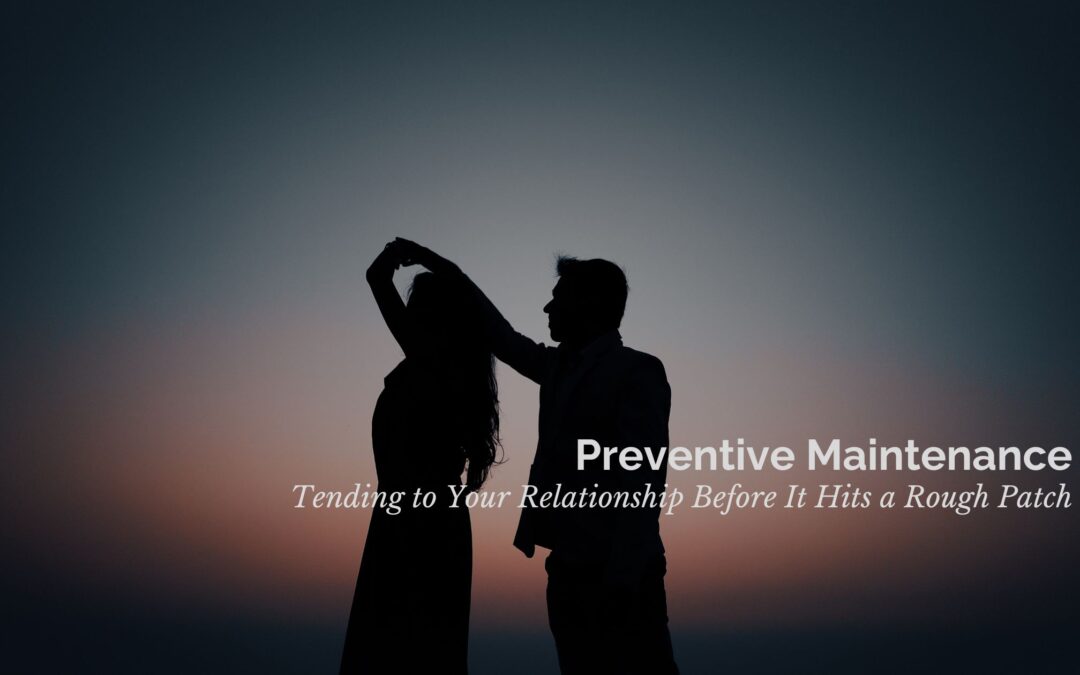Imagine tending to a campfire. You can be proactive, steadily adding small pieces of wood to maintain a consistent burn. By anticipating the fire’s needs, you ensure its strength and warmth remain steady. Alternatively, you can be reactive, neglecting the fire until it starts to dwindle, then hurriedly adding large pieces of wood to revive the flames. This reactive approach leads to fluctuations in the fire’s intensity. If left unattended, the fire may eventually die out completely.

Here are some examples of a relationship “fire” that needs small pieces of wood added to it to help it keep going rather than large pieces of wood to try and revive it:
- Mostly, we get along well, but we argue about the same things.
- I notice we aren’t doing as many things together as we used to, and I miss it.
- I’m starting to feel like we’re not as close as before, but otherwise, things are okay.
- Since ___ (fill in the blank ex: we had kids, she started a new job, he started caring for his aging parents, or kids moved out), we haven’t been as close.
Here are some suggestions if you are interested in being proactive in your relationship but unsure how to broach the topic with your partner.
Choose a time when you are free from distractions and feeling calm or neutral.
- Approach the conversation with empathy, openness, and a genuine desire to grow together.
- Express your feelings and needs using “I” statements and avoid placing blame or criticism. For example, “I’ve been feeling disconnected from you lately. You mean a lot to me, and I really value our relationship. I think we could benefit from getting some help to improve our communication and deepen our connection.”
- Emphasize that seeking couples counseling is not a sign that they are failing or that there is something wrong with the relationship, but rather, that this is a proactive step towards tending to and strengthening your bond.
- Give your partner space to share how they feel. Acknowledge and validate their feelings, even if you disagree with them. This requires listening to your partner from a place of curiosity, not judgment or defensiveness. Repeat back what you hear your partner say.
- Emphasize that the two of you are in this together, and the primary goal is to strengthen your relationship so that you both feel seen, heard, supported, and fulfilled.
- Continue to share until you both feel heard and understood.
- Work together to develop your relationship goals and discuss expectations for this process.
Before considering couples counseling, you do not need to wait for your relationship to reach a crisis point. We are wired for connection and thrive as individuals when our most important, intimate relationship is strong. Take proactive steps now; the benefits will be worth it in the long run.
Meet the author: Dr. Dorothy Moon
Learn More about Dorothy’s approach to therapy
Photo Credits:
Photo by Timo Stern on Unsplash
Photo by Octavio Fossatti on Unsplash


 Choose a time when you are free from distractions and feeling calm or neutral.
Choose a time when you are free from distractions and feeling calm or neutral.


